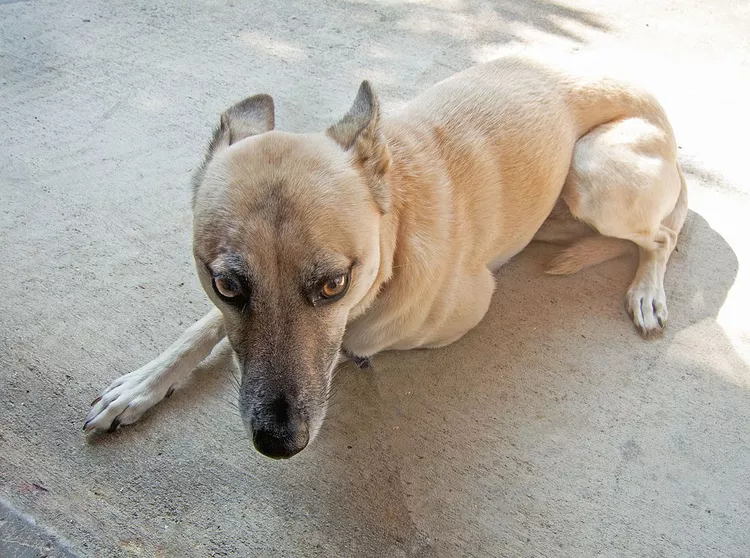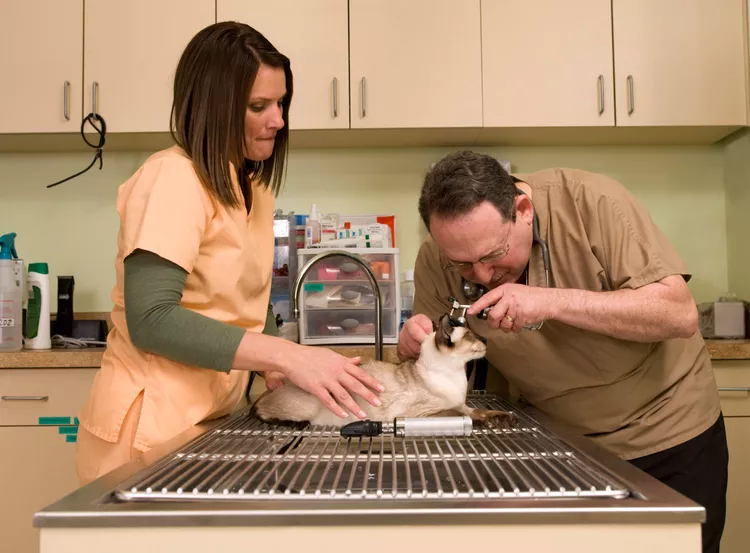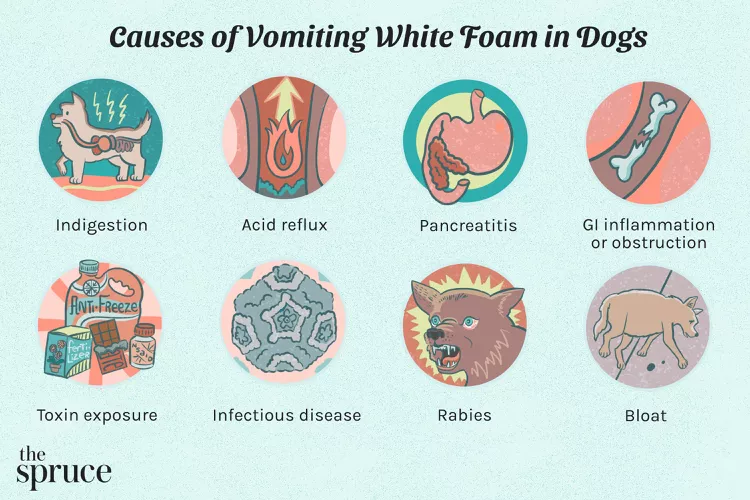Pyoderma is an itchy and uncomfortable skin condition, but it generally looks more serious than it is. Dogs with underlying conditions affecting their skin, endocrine system, or immune system are most vulnerable to this type of infection that arises from naturally occurring bacteria and causes red pustules and crusty lesions. Some mild cases will resolve on their own within a couple of weeks; others may require topical or oral antibiotic therapy to heal.
Because pyoderma can occur as a result of an underlying condition that compromises a pup's immunity, a veterinary evaluation is recommended. Pyoderma is similar to impetigo, a human skin infection, and can be caused by similar bacteria.
What Is Pyoderma?
Pyoderma is a generalized bacterial skin infection that creates pus-filled bumps that break into crusting lesions on areas of sparse hair or skin folds. It often indicates an underlying health condition.
Symptoms of Pyoderma in Dogs
The signs of pyoderma are most obvious on the chin and abdomen where a dog's hair is sparse. Look for:
The characteristic pustules and papules will burst—due to scratching or as a natural course of the infection—causing circular lesions that become crusty. Because pyoderma lesions can be itchy, a dog may scratch the affected areas of the skin, potentially causing further redness, bleeding, and skin damage. If a dog's pyoderma is severe, the discomfort may cause it to be depressed, lethargic, and uninterested in food.
What Causes Pyoderma in Dogs?
The specific cause of pyoderma is not entirely understood because only certain individuals develop this problem from bacteria that are naturally present on all dogs' skin. If a dog has a compromised immune system, an endocrine disorder, or skin damage that allows bacterial infiltration, then it is more vulnerable to pyoderma. Other factors that may increase a dog's risk include:
- Unhygienic living conditions (overcrowding, lack of sanitation)
- Heavy flea infestation or mange
- Food allergy
- Thyroid disease or other hormonal imbalances
Some breeds seem to be predisposed to certain types of pyoderma, including Staffordshire bull terriers, bulldogs, boxers, Pekingese, pugs, and shar-peis.
How Do Vets Diagnose Pyoderma in Dogs?
Your vet will conduct a physical exam and skin cytology tests to determine the presence of bacterial, fungal, or mite infestations. This will help identify pyoderma and confirm or rule out other causes of skin inflammation.
Once pyoderma is diagnosed, further testing should be performed to determine if there is an underlying condition that facilitated the skin infection.
How to Treat Pyoderma
Pyoderma is generally easy to treat. Some cases may even resolve on their own without treatment or with a medicated shampoo alone. If a dog's pyoderma seems resistant to healing, then a course of topical or oral antibiotics may help. Keeping the skin clean and dry will also speed healing.
Prognosis for Dogs with Pyoderma
Pyoderma is not generally life-threatening and usually remains localized, rarely spreading or leading to deeper skin infections. A dog may experience flare-ups until intermittently, but addressing any underlying allergic, immune system, or endocrine issues can help minimize the frequency and severity of problems.
Pyoderma isn't a directly contagious condition, as impetigo is in people. The bacteria involved do not usually cause a problem when people or other animals with healthy skin and immune systems are exposed to them. Practicing good hygiene after touching a dog with pyoderma is still safest to limit the spread of these bacteria.
How to Prevent Pyoderma
Since the specific cause of pyoderma isn't fully understood, prevention is not 100% possible. Keeping your dog's coat clean and healthy and pursuing regular veterinary care to control any underlying conditions are good protective measures.




















